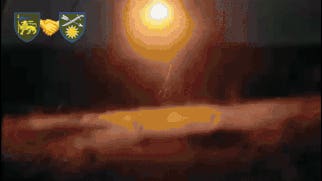Efforts to extend a temporary truce between Israel and Hamas depend on the militant group locating dozens of women and children held hostage in Gaza by civilians and gangs, Qatar’s prime minister has said.
A four-day pause in the war brokered by the Gulf state which began on Friday is due to end after Monday. As part of the deal the Islamist group agreed to free 50 women and children. In return Israel agreed to the delivery of increased aid into the besieged strip and the release of 150 Palestinians held in Israeli prisons.
But Qatari prime minister Sheikh Mohammed bin Abdulrahman al-Thani told the Financial Times that more than 40 other women and children were being kept captive in Gaza who were not believed to be held by Hamas. He said the truce could be extended if Hamas was able to use the pause in the conflict to locate those hostages.
“If they get additional women and children, there will be an extension,” Sheikh Mohammed said in an interview. “We don’t yet have any clear information how many they can find because . . . one of the purposes [of the pause] is they [Hamas] will have time to search for the rest of the missing people.”

Sheikh Mohammed said Israel had provided Qatar with a list of more than 90 women and children seized during Hamas’s devastating October 7 attack that killed about 1,200 people according to Israeli officials. About 240 hostages were taken and dragged back to Hamas-controlled Gaza. The other captives include Israeli soldiers and elderly civilians.
The Qatari prime minister said Israel was willing to extend the temporary truce if “there’s proof” that Hamas has more women and children to release, “but nothing beyond that”.
Hamas has told Qatar that its fighters did not capture civilians, blaming it on other militant groups and Palestinians who rampaged through southern Israel after fighters broke through the Israeli security barriers around Gaza, Sheikh Mohammed said.
When the hostage deal was brokered, it was agreed 50 women and children would be released because that was the number Hamas said it had been able to secure, Sheikh Mohammed said.
Hamas said in a statement on Sunday it was seeking to extend the truce by increasing the number of “those released from imprisonment”. But the group did not specify whether it was talking about hostages in Gaza or Palestinians in Israeli prisons.
Video posted on social media on the day of the October 7 attacks, as well as footage collected by the Israeli military in subsequent weeks, showed Hamas fighters, some in uniform, and other Palestinians going through Israeli houses killing civilians and taking others captive.
Sheikh Mohammed said Palestinian Islamic Jihad, another militant faction in Gaza, was co-ordinating with Hamas on the hostage release.
“From our perspective, we want to see this war stopped to figure out a solution to address the concerns they [Israel] have, but until now the only willingness to negotiate about any pause or ceasefire . . . is associated with the hostages,” Sheikh Mohammed said. “If things move in the right direction, we will be able to enter negotiations on another category [of hostages].”
Since the hostage agreement went into effect on Friday, Hamas has released 39 women and children and 18 foreigners. Israel has freed 117 Palestinian women and children from its prisons.
Qatar, which hosts Hamas’s political office in Doha, has dispatched officials to Israel and Gaza to co-ordinate with the parties.

Sheikh Mohammed, who also serves as foreign minister, said failure to secure an extended ceasefire would risk the Israel-Hamas war spilling over and destabilising “the entire region”.
He criticised western powers for not putting more pressure on Israel to end the fighting, warning that Israel’s bombardment and siege of Gaza threatened to radicalise a generation of young Arabs.
According to Palestinian officials, Israeli strikes have killed more than 13,300 people, including many women and children, in Gaza, which is home to 2.3mn people.
Sheikh Mohammed said the Biden administration had been helpful throughout the hostage negotiations, but added “we believe there is more to be done on the ceasefire”.
He called for the Israel-Hamas war “just to be treated like other conflicts”, saying “calling for a ceasefire after this destruction and killing [in Gaza] and displacement is a duty on everyone”.
“There’s a big disappointment in the region from the west’s reaction. Yes we agree what happened on October 7 was a horrific attack, we condemn killing civilians . . . we were expecting from the west the killing of Palestinian people is something to be condemned,” he said.
“The lives of people are the lives of human beings, whether they are Palestinians, Israelis, Ukrainians or Russians — whoever they are,” he added. “And what we expect at least is [the west] to step up to the same standards, the same principles that they stood up to with other wars.”
Sheikh Mohammed said Israel’s stated aim of destroying Hamas and eradicating it from Gaza was not realistic.
“At the end of the day, Hamas’s destruction by the continuation of this war will never happen. This is just going to fuel the narrative of extremism and radicalisation,” he said. “We need to have a political solution that ensures safety for the Palestinian people and for the Israeli people.”
He said Palestinians in Gaza and the occupied West Bank needed to have a “political horizon” for a viable state of their own; to be able to choose their own leadership and have one government administering both territories.
“Other than that . . . there won’t be a solution,” he said.
But for now: “Our only plan is to stop the war”.
“Talking about the day after as the killing and the massacres is ongoing is just like endorsing this war,” Sheikh Mohammed said. “The amount of anger and agitation in the Arab population in the region is unprecedented when they see these images, and nobody is stepping up to stop it.”
Read the full article here




